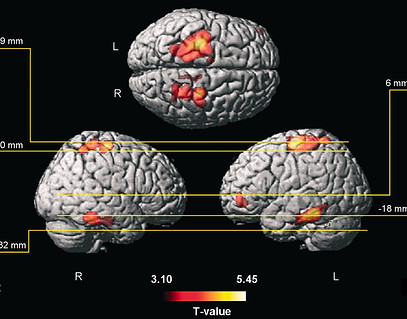

BENEFITS OF PLAYING AN INSTRUMENT
%20(2).png)
IN CHILDREN
Studies are showing that learning to play an instrument can bring significant improvements in your brain.
It gives children an advantage in the development of their intellectual, perceptual, and cognitive skills. According to the studies, just one hour a week of learning music is enough for the full brain benefits to take place – including an all-round boost in language skills and a significant increase in IQ.
IN ADULTS
Recent studies suggest that music enhances cognitive function and promote healthy aging. Playing an a musical instrument such as piano throughout life is associated with a lower risk of developing dementia. This has been attributed to the ability of musical training and performance to increase the resiliency of the brain.
Studies have shown that people who took lessons at some point in their life, have better cognitive function, with better performance for object-naming, visuospatial memory and rapid mental processing.
These studies suggest that it is never too late for the brain to benefit from the powers of music, and the more actively one engages in music-making, the greater the powers become.
GROWS YOUR BRAIN
Harvard neurologist Gottfried Schlaug found that the brains of adult professional musicians had a larger volume of gray matter than the brains of nonmusicians had. Schlaug and colleagues also found that after 15 months of musical training in early childhood, structural brain changes associated with motor and auditory improvements begin to appear.
Still other studies have shown an increase in the volume of white matter. Such findings speak to the brain's plasticity—its ability to change or adapt in response to experience, environment, or behavior. It also shows the power of musical training to enhance and build connections within the brain.

IMPROVES YOUR LANGUAGE ABILITIES
When children start studying music before the age of seven, they develop bigger vocabularies, a better sense of grammar and a higher verbal IQ. These advantages benefit both the development of their mother tongue and the learning of foreign languages. During these crucial years, the brain is at its sensitive development phase, with 95% of the brain's growth occurring now. Music training started during this period also boosts the brain's ability to process subtle differences between sounds and assist in the pronunciation of languages – and this gift lasts for life, as it has been found that adults who had musical training in childhood still retain this ability to learn foreign languages quicker and more efficiently than adults who did not have early childhood music training.
The Guardian

HIGHER IQ
The researchers at Boston Children’s Hospital conclude that children and adults with extensive musical training show enhanced executive function when compared to non-musicians, especially for cognitive flexibility, working memory, and processing speed.
Most parents want their children to be intelligent and successful. And while some experts have pushed parents to teach their children coding, new research is pointing to music as the gateway to smarter kids.
Sorry Kids, piano lessons make you smarter (Forbes)
If You Want Smarter Kids Teach Them Music, Not Coding, According To MIT

STAVE OFF DEMENTIA AND COGNITIVE IMPAIRMENT
Playing a musical instrument throughout life is associated with a lower risk of developing dementia. This has been attributed to the ability of musical training and performance to increase the resiliency of the brain.
Music has been shown to drastically improve the ability of dementia patients to communicate and access memories that verbal communication can no longer reach. NHS England describes music as being able to “help reduce anxiety and depression, help maintain speech and language, help at the end of life and enhance the quality of life”.
“If you want to keep your brain engaged throughout the aging process, listening to or playing music is a great tool. It provides a total brain workout.”
Classic FM

REDUCES STRESS
Studies has shown that playing an instrument improves mental health: they experience less anxiety, loneliness, and depression. Playing piano has also been shown to be a great source of stress relief, and provides ample opportunities to bolster self-esteem.
Research shows that making music can lower blood pressure, decrease heart rate, reduce stress, and lessen anxiety and depression. It is also a widely used form of therapy for Attention Deficit Disorder.
Livescience

OTHER BENEFITS OF PLAYING MUSICAL INSTRUMENT
-
Increases the capacity of your memory
-
Refines your time management and organizational skills
-
Teaches you perseverance
-
Enhances your coordination
-
Betters your mathematical ability
-
Improves your reading and comprehension skills
-
Increases your responsibility
-
Exposes you to cultural history
-
Boosts your team skills
-
Promotes more divergent thinking
-
Sharpens your concentration
-
Fosters your self-expression and relieves stress
-
Creates a sense of achievement
-
Promotes your social skills
-
Boosts your listening skills
-
Teaches you discipline
-
Elevates your performance skills and reduces stage fright
-
Enhances your respiratory system
-
Promotes happiness in your life and those around you






